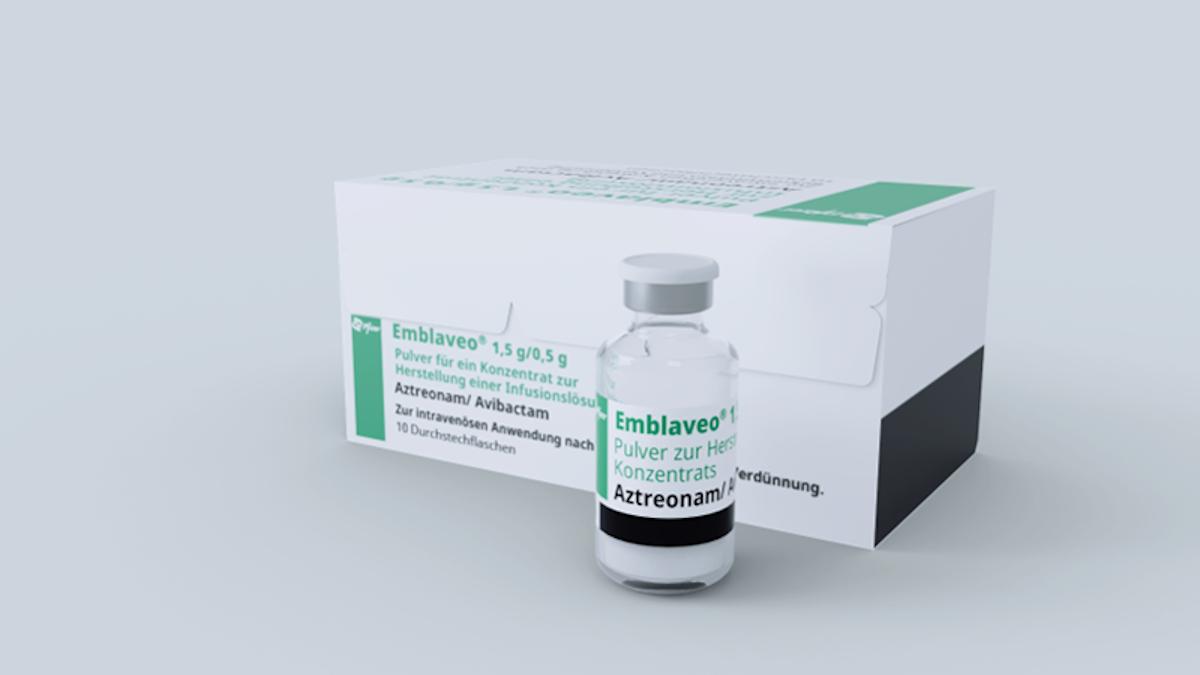FDA clears new antibiotic for superbug infections

AbbVie has claimed FDA approval for Emblaveo, a new antibiotic product to treat complicated intra-abdominal infections (cIAI), including those caused by Gram-negative bacteria that represent a serious threat to public health.
The drug – a combination of beta-lactam antibiotic aztreonam with beta-lactamase inhibitor avibactam – is the first monobactam/β-lactamase inhibitor combination to be cleared in the US for this type of infection, according to the pharma group.
Specifically, the fixed-dose, intravenous product can be used in combination with cIAI caused by susceptible Gram-negative bacteria, including Escherichia coli, Klebsiella pneumoniae, Klebsiella oxytoca, Enterobacter cloacae complex, Citrobacter freundii complex, and Serratia marcescens.
Gram-negative bacterial infections are a significant public health threat due to their ability to develop antimicrobial resistance (AMR) and include 'superbugs' that can produce metallo-beta-lactamases (MBLa), enzymes, which can make organisms resistant to almost all beta-lactam antibiotics. MBL-producing Gram-negative bacteria are among the most challenging infections to control, are on the rise globally, and are a priority pathogen for the World Health Organization (WHO).
The FDA approval comes after Emblaveo was approved in the EU last year with a broader label that covered (cIAI) as well as hospital-acquired pneumonia (HAP), including ventilator-associated pneumonia (VAP), and complicated urinary tract infections (cUTI), including pyelonephritis.
AbbVie holds commercial rights to Emblaveo in the US and Canada, with Pfizer responsible for the antibiotic elsewhere.
The new antibiotic has been welcomed by James McKinnell, an infectious disease specialist at the Torrance Memorial Medical Centre in Torrance, California, who said that rising rates of AMR in Gram-negative pathogens are leaving some patients with little or no treatment options, leading to "extended hospital stays, additional morbidity, and death."
Emblaveo will offer physicians "a much-needed therapeutic option to help address some of the most difficult antimicrobial-resistant pathogens," he added.
Pricing information for Emblaveo isn't available yet, but new antibiotics are rarely big earners for drugmakers because they tend to be reserved for serious, hard-to-treat infections only. That is held up as one reason why pharma companies have been exiting antimicrobial R&D en masse in recent decades, contributing to a situation in which few new candidates are coming through the pipeline.
Some efforts are being made to improve the business model for antimicrobial developers, for example, by implementing subscription-based payments in which developers are paid a fixed annual fee for access to their drugs even if they are not used.
That approach has been pioneered in the UK, and a federal initiative has been proposed for several years in the US, the Pasteur Act, although it has been struggling to advance through Congress.
AMR already kills a million and a half people every year worldwide, and that could reach 10 million deaths by 2050 unless there is a concerted effort to research new antibiotics, according to some estimates.












